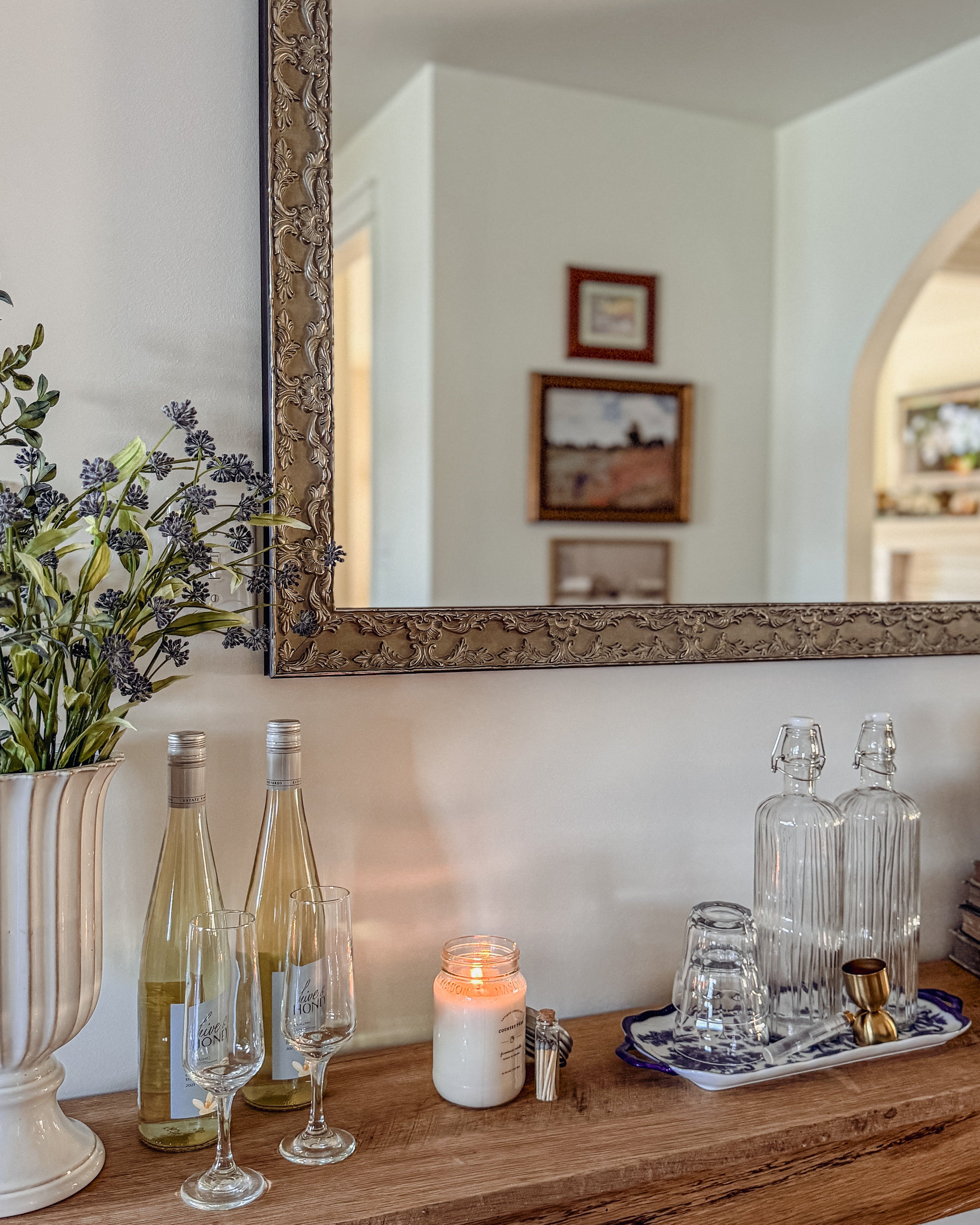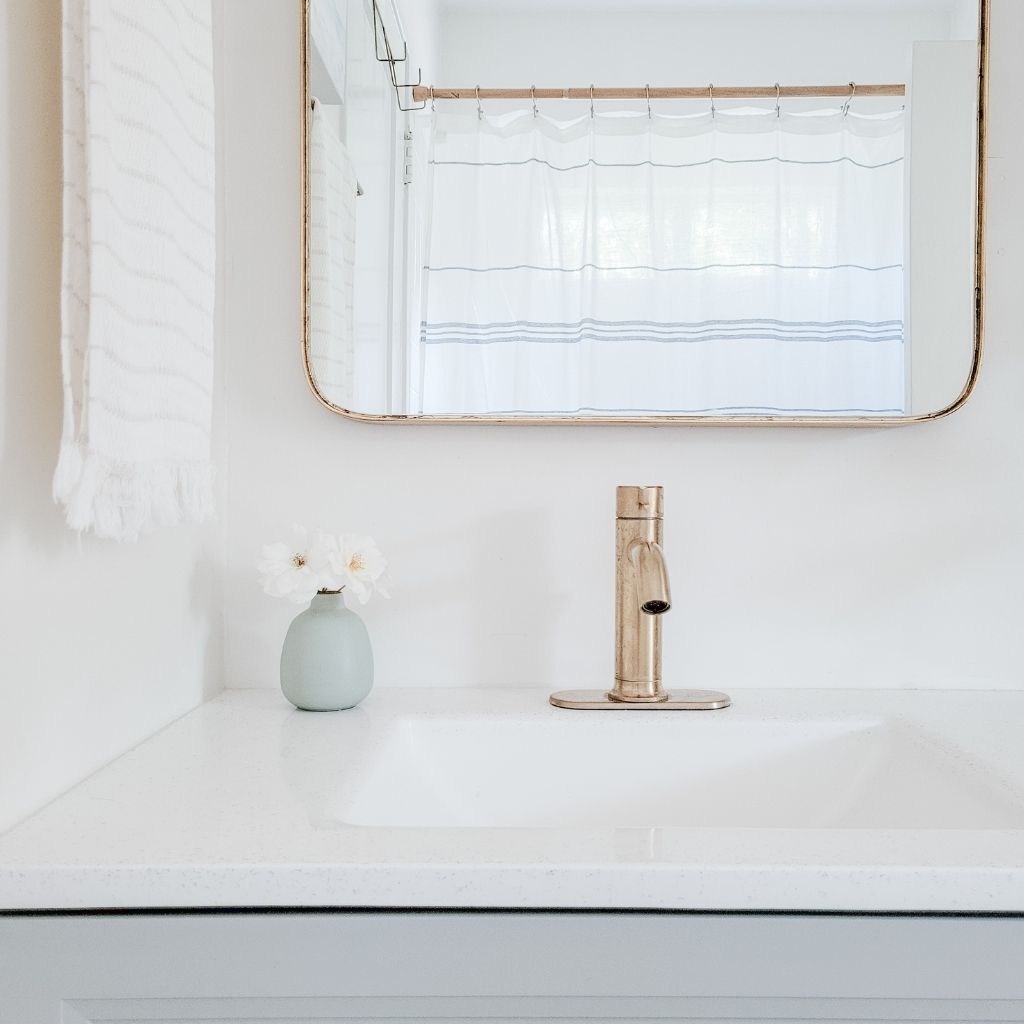When properly cared for, mirrors can last a lifetime. However, we’ve all seen tarnished mirrors in antique stores with blackened edges. This process, called desilvering, can happen when mirrors aren’t properly maintained. Luckily, it doesn’t take much extra effort to ensure your mirror stays looking as good as new — just add these few simple steps into your home care routine.
Be mindful of water splashes
The main reasons bathroom mirrors are at the greatest risk of desilvering is due to excess moisture that can affect the protective sealant on the back of your mirror. Take extra care to not splash water around when you wash your hands, brush your teeth or otherwise use a sink directly below your mirror. If any water does splash onto the mirror, make sure you wipe it up right away.

Dry off your mirror after particularly humid showers
If your bathroom gets particularly steamy after a hot shower, run a towel along the edges of your mirror to dry the moisture manually instead of waiting for it to air dry.
Clean with caution
Avoid spraying an excess of glass cleaner on your mirror when you clean it; instead, use product sparingly and make sure to wipe the mirror completely dry when finished. In fact, your best bet is to avoid spraying cleaner on your mirror altogether and use a microfiber cloth or paper towel sprayed with cleaner instead.
Choose the right products
Certain cleaners are more harmful to your mirror over time. Steer clear of vinegar-based cleaners or any cleaners containing ammonia.
Add a custom frame
Not only can a frame around your bathroom mirror hide any possible desilvering that might have already occurred, but it can also protect those edges from invading moisture. Plus, as a bonus, it will help your mirror look refreshed and polished, without needing to replace the glass.
With these five tips, you can enjoy your mirror for many more years to come.
Explore Add A Frame® options.
Be mindful of water splashes
The main reasons bathroom mirrors are at the greatest risk of desilvering is due to excess moisture that can affect the protective sealant on the back of your mirror. Take extra care to not splash water around when you wash your hands, brush your teeth or otherwise use a sink directly below your mirror. If any water does splash onto the mirror, make sure you wipe it up right away.

Dry off your mirror after particularly humid showers
If your bathroom gets particularly steamy after a hot shower, run a towel along the edges of your mirror to dry the moisture manually instead of waiting for it to air dry.
Clean with caution
Avoid spraying an excess of glass cleaner on your mirror when you clean it; instead, use product sparingly and make sure to wipe the mirror completely dry when finished. In fact, your best bet is to avoid spraying cleaner on your mirror altogether and use a microfiber cloth or paper towel sprayed with cleaner instead.
Choose the right products
Certain cleaners are more harmful to your mirror over time. Steer clear of vinegar-based cleaners or any cleaners containing ammonia.
Add a custom frame
Not only can a frame around your bathroom mirror hide any possible desilvering that might have already occurred, but it can also protect those edges from invading moisture. Plus, as a bonus, it will help your mirror look refreshed and polished, without needing to replace the glass.
With these five tips, you can enjoy your mirror for many more years to come.
Explore Add A Frame® options.



